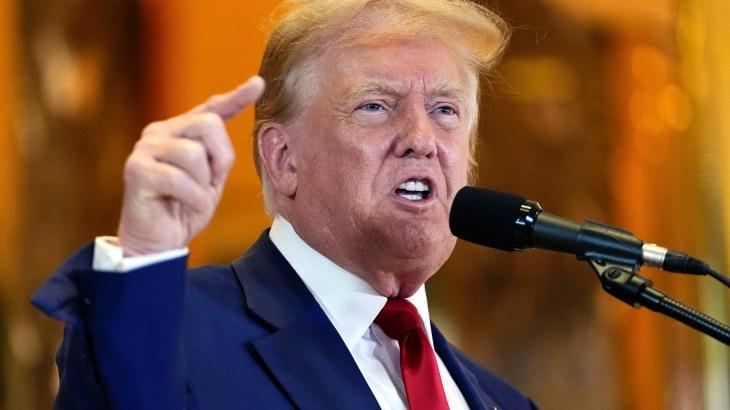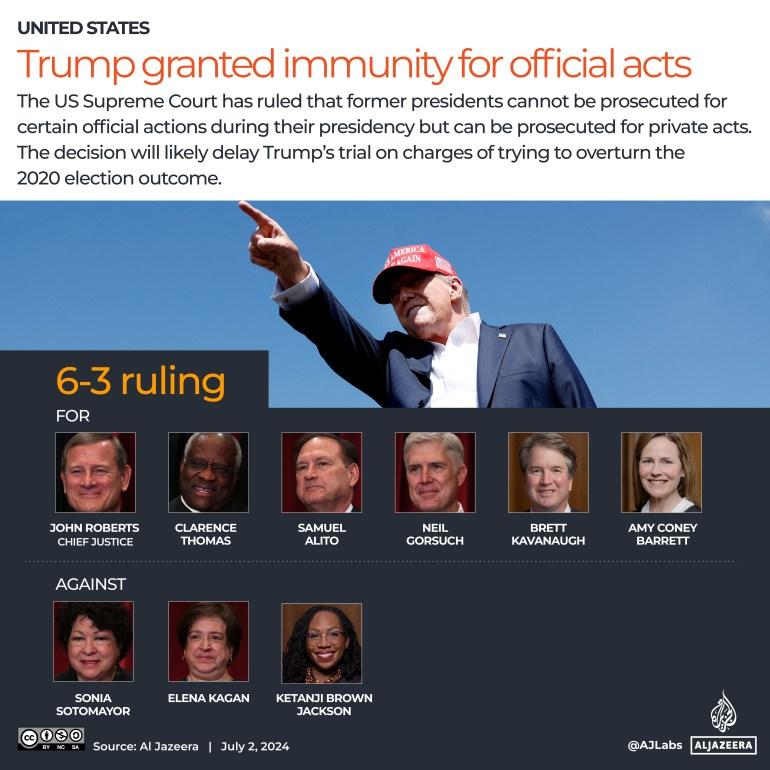Source: ALJAZEERA
ALJAZEERA MEDIA NETWORK

Explore the implications of Trump's Supreme Court immunity ruling and the dissenting opinions that warn of potential abuses of power.
On Monday, the Supreme Court of the United States (SCOTUS) ruled that Donald Trump is immune from prosecution for acts he committed within his constitutional powers as president.
The ruling applies to anyone who holds the position of US president. However, a president can be prosecuted for acts committed in a personal capacity.
 Interactive US Supreme Court Trump Immunity July2 2024
Interactive US Supreme Court Trump Immunity July2 2024
Six Supreme Court justices – all appointed by Republican presidents – of nine agreed that if the president takes any action within the powers granted to him through the constitution, he cannot be prosecuted.
The US Constitution grants the president powers, including the ability to issue pardons, veto or sign bills, nominate high officials including cabinet members and Supreme Court justices, and direct the military after a congressional declaration of war on a foreign nation.
The verdict additionally grants presidents presumptive immunity “from criminal prosecution for a President’s acts within the outer perimeter of his official responsibility”, meaning a president is presumed to enjoy immunity from prosecution if his action pertains even just a small amount to his official status.
Furthermore, the court ruled that if a president is prosecuted for an act carried out in a personal capacity, the prosecution cannot refer to the president’s official actions in evidence.
![Gary Roush, of College Park, Md., protests outside the Supreme Court Monday, July 1, 2024, in Washington. [Mariam Zuhaib/AP]](https://nowtrends.net/storage/2024/07/U8FV0DUKC8UC_K89O99KQMB5Y.jpg) Gary Roush, of College Park, Md., protests outside the Supreme Court Monday, July 1, 2024, in Washington. [Mariam Zuhaib/AP]
Gary Roush, of College Park, Md., protests outside the Supreme Court Monday, July 1, 2024, in Washington. [Mariam Zuhaib/AP]
Three justices – Sonia Sotomayor, Ketanji Brown Jackson, and Elena Kagan – disagreed with the SCOTUS opinion, issuing a 29-page dissent.
Led by Sotomayor... (content truncated)
Your email address will not be published. Required fields are marked *